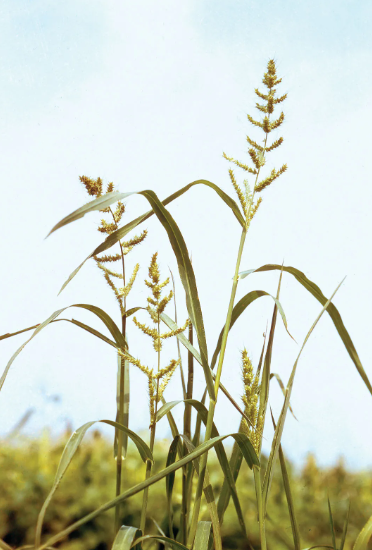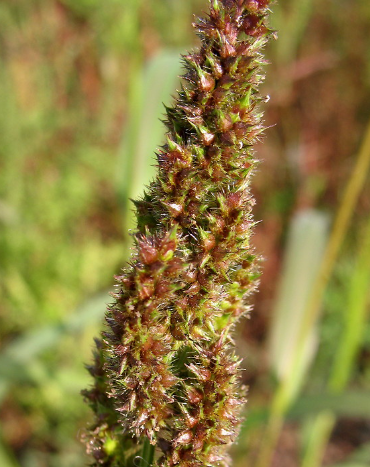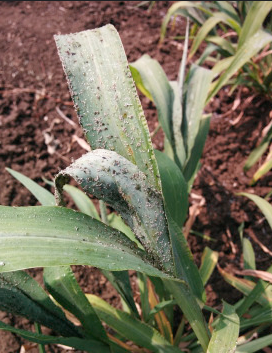Barnyard Grass Plant
Barnyard Grass (Echinochloa crus-galli) grows quickly up to 5 ft, prefers moist loam, full sun, high moisture, and is edible but not medicinal.

Habit
Grass
Height
0.5-1.5 m
Growth
Fast
Soil
Moist, fertile soils
Shade
Full
Moisture
High
Edible
Yes
Medicinal
No
Origin
Europe, Asia
Climatic Condition
Temperate to Tropical
Temperature (°)
15-30°C
Humidity (%)
60-80%
Potting media
Garden soil
Fertilizers
Not typically fertilized
Watering
Requires moist conditions; thrives in wet areas
Plant Weight
0.5-1 kg
Flowering Time
Summer
Soil Ph level
5.5 - 7.5
Water Ph level
6.0 - 7.0
Soil EC
Medium
Yield Per Plant
Not applicable
NPK ratio
20;10:10
life Span
Annual
Health Benefits
Yes
Suggested Grow Media or Potting Mix ?
50% peat, 25% sand, 25% compost
Suggested Fertigation/Fertilizers
Fertilize every 2-3 weeks with nitrogen-rich fertilizer.
Common Diseases and Remedies
Leaf Spot, Rust, Downy Mildew, Fusarium Wilt, Anthracnose.
Dark spots on leaves, Reddish pustules on leaves, White fungal growth on leaves, Wilting and yellowing leaves, Dark lesions on leaves.
Copper-based fungicides, Fungicides with propiconazole, Fungicides with mancozeb, Fungicides with tebuconazole, Fungicides with azoxystrobin.
HEALTH BENEFITS
Barnyard grass (Echinochloa crus-galli) is often considered a weed, but it has some potential health benefits, especially in traditional medicine. Here are some possible benefits:
- Rich in Nutrients – Certain varieties of barnyard grass, like Echinochloa frumentacea (Indian barnyard millet), are grown as a grain and contain protein, fiber, and essential minerals such as iron, calcium, and phosphorus.
- Digestive Health – The fiber content may help support digestion, prevent constipation, and promote gut health.
- Antioxidant Properties – Some studies suggest that barnyard grass contains bioactive compounds with antioxidant effects, which help fight free radicals and reduce oxidative stress.
- Anti-Inflammatory Effects – Traditional medicine uses it to reduce inflammation, though more research is needed to confirm its effectiveness.
- Blood Sugar Management – Barnyard millet, a cultivated variety, has a low glycemic index and may help regulate blood sugar levels, making it beneficial for people with diabetes.
- Heart Health – The fiber and antioxidants may contribute to lowering cholesterol and improving cardiovascular health.

